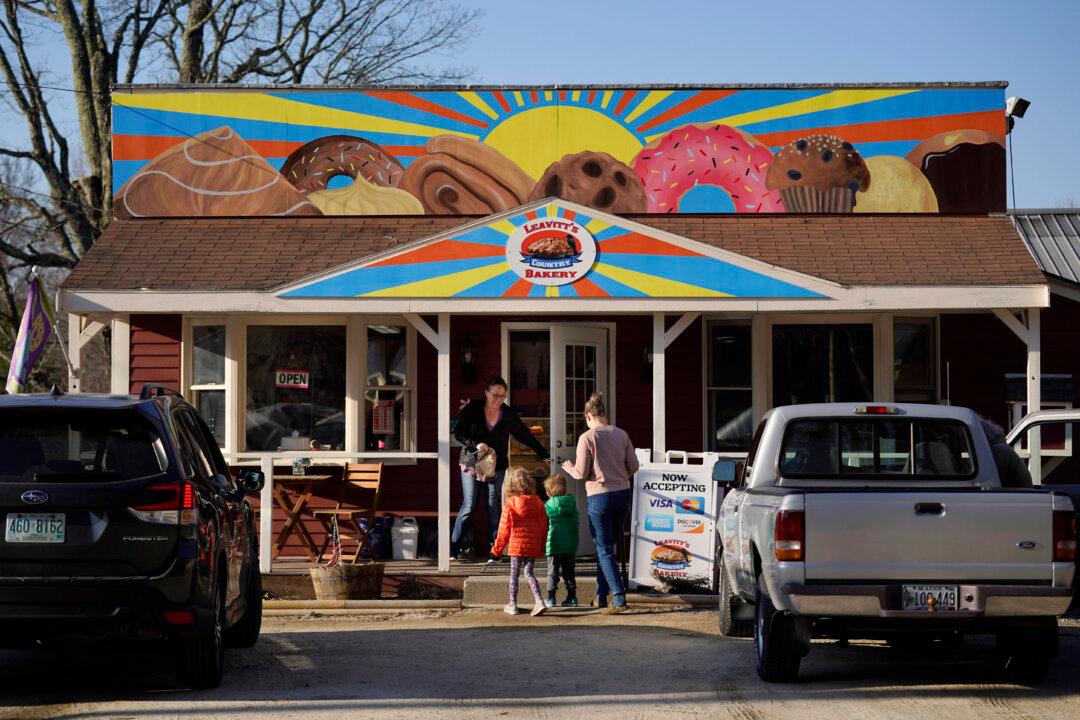A federal judge has ruled that the New Hampshire town of Conway violated the free speech rights of a local bakery owner when it attempted to force the removal or alteration of a colorful mural depicting pastries, concluding a closely watched First Amendment dispute.
U.S. District Judge Joseph Laplante issued the decision Monday, siding with Sean Young, owner of Leavitt’s Country Bakery, after a one-day trial earlier this year.





